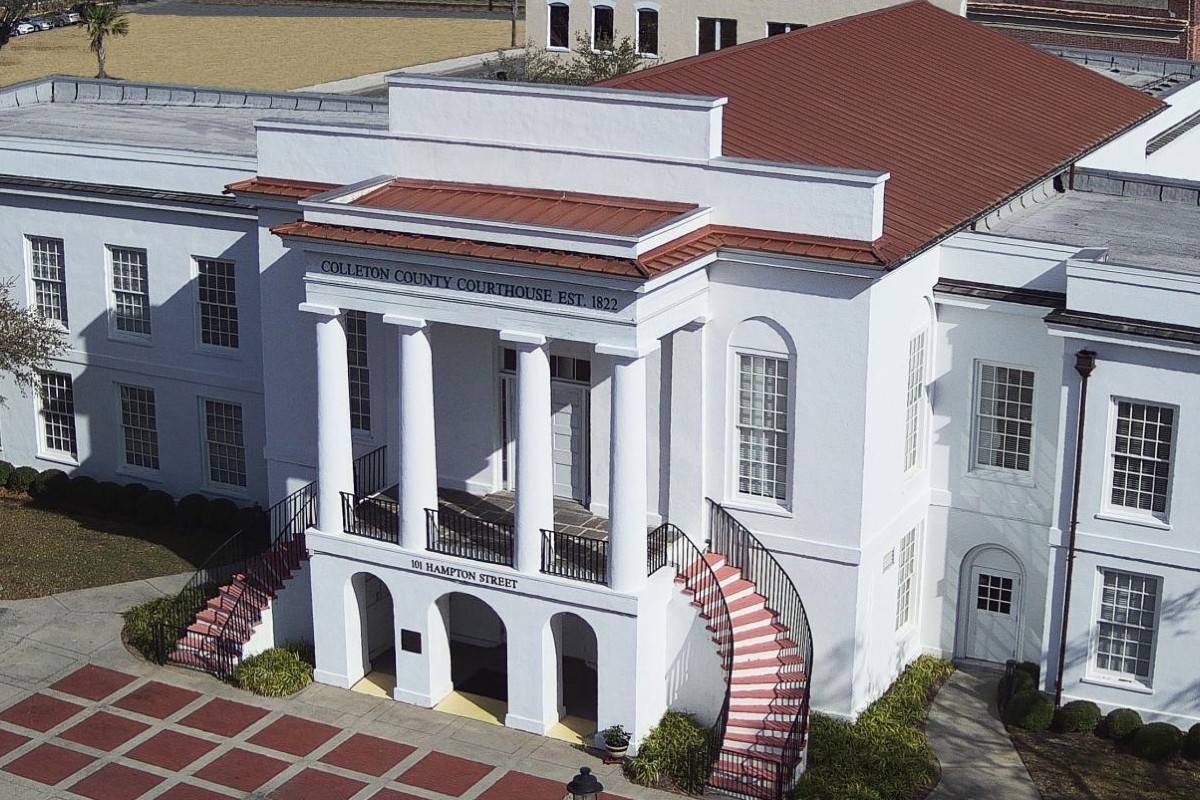
By Jace Woodrum, special to Statehouse Report | The ongoing Colleton County trial of Alex Murdaugh has all the makings of a great television drama – a small community beloved for its tranquility, a well-known legal family, questions of financial impropriety and murder.

For many of us, no matter how we feel about the case, we will watch the proceedings with a kind of pride because we believe this is how our justice system works for people. Someone presumed to be innocent is supported by great legal minds determined to advocate for him. A jury is carefully selected to be impartial. Evidence is evaluated to ensure fairness.
All the stories we’ve been told from Perry Mason to Law and Order tell us this is how the legal system works. But what we’re seeing happening before us in theMurdaugh trial is not at all representative of what happens in our legal system in South Carolina.
While defendants in criminal cases are constitutionally entitled to legal counsel, whether they can afford a lawyer or not, the same cannot be said for people involved in civil cases.
Every day, South Carolinians navigate evictions, foreclosures, debt collection, divorce, child custody and other legal matters without attorneys to guide them and advocate for them. These are life-altering moments—and South Carolinians navigate them alone—not because they want to, but because they do not have the resources to hire an attorney.
Most of us recognize these words, “You have the right to an attorney. If you cannot afford an attorney, one will be provided for you.” But what many of us don’t realize is that attorneys are only provided to people facing criminal charges: shoplifting, vandalism, trespassing, disorderly conduct and so on.
If you’re engaged in a civil matter, South Carolina’s legal system leaves those of us who can’t afford an attorney to fend for ourselves. And a lot of us can’t afford an attorney: 15% of South Carolinians live in poverty.
Lack of justice in evictions
Let’s look at eviction to see how a lack of access to justice is impacting South Carolinians, especially those who are poor.
In our state, nearly one quarter of renters spend more than half their total income on rent. That’s led to the state having one of the highest eviction rates in the country. Despite eviction changing the course of someone’s life dramatically, 99% of people involved in eviction cases do not have an attorney.
Imagine struggling to make ends meet. The cost of groceries keeps going up, the kids are growing like weeds and need new shoes, and with these gas prices, it’s harder and harder to fill up your cousin’s car when you borrow it to get to work. Each month, it gets more difficult to make rent. Before you know it, you’re facing an eviction. It’s impossible to fall asleep at night because you can’t stop imagining all your things thrown out on the side of the road – your kid’s art, your late mother’s kitchen table, your dirty laundry.
You’ve heard there’s help out there – but you don’t know how to find it. You canceled the internet service when things got tight, and it’s impossible to find a number to call. Your neighbor tells you to get a lawyer, but if you couldn’t afford rent, and that’s how you got into this mess, how could you afford a lawyer?
We all know where this story ends. A family loses their home, and with an eviction in their past, finding the next place to live becomes that much harder.
But there’s something we can do to stop stories like these. The state can guarantee the right to an attorney for people facing eviction – just like we guarantee legal representation in criminal cases for anyone who can’t afford one.
It’s something other places have done, and it’s helped, even in one of the most expensive places I can think of living: New York City. There, 86% of renters facing an eviction remained in their homes when they had an attorney. That’s because legal representation can help renters apply for rental assistance, ensure courts do not proceed with an eviction while applications are pending and address situations where landlords refuse to accept the rental assistance.
What New York and other places have realized is your access to legal counsel shouldn’t be dependent on how much money you have or what kind of legal challenges you face.
So as we watch . Murdaugh’s lawyers advocate for him, let us think about the individuals and families who are left to face legal hurdles alone, a. Let’s ask our lawmakers to enact an eviction right to counsel so that access to justice isn’t only for the rich.
Jace Woodrum is the executive director of the ACLU of South Carolina. Have a comment? Send to: feedback@statehousereport.com.















 We Can Do Better, South Carolina!
We Can Do Better, South Carolina!